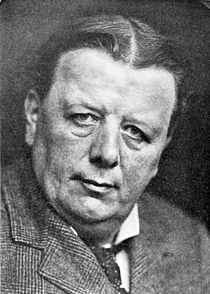Ray Lankester
| Sir E. Ray Lankester | |
|---|---|

Sir E. Ray Lankester in 1908
|
|
| Born |
15 May 1847 London |
| Died | 13 August 1929 (aged 82) London |
| Nationality | British |
| Fields | Zoology |
| Institutions |
University College London Oxford University British Museum (Natural History) |
| Alma mater | Christ Church, Oxford |
| Known for | Evolution, Rationalism |
| Influences | Thomas Henry Huxley, August Weismann, Anton Dohrn |
| Influenced |
E.S. Goodrich W.F.R. Weldon |
| Notable awards | Knight Bachelor (1906) Darwin-Wallace Medal (Silver, 1908) Copley Medal (1913) Linnean Medal (1920) |
| Author abbrev. (botany) | Lank. |
Sir E. Ray Lankester KCB FRS (15 May 1847 – 13 August 1929) was a British zoologist, born in London.
An invertebrate zoologist and evolutionary biologist, he held chairs at University College London and Oxford University. He was the third Director of the Natural History Museum, and was awarded the Copley Medal of the Royal Society.
E. (Edwin: his first name was never used) Ray Lankester was the son of Edwin Lankester, a coroner and doctor-naturalist who helped abolish cholera in London. Ray Lankester was probably named after the naturalist John Ray: his father had just edited the memorials of John Ray for the Ray Society.
In 1855 Ray went to boarding school at Leatherhead, and in 1858 to St Paul's School. His university education was at Downing College, Cambridge, and Christ Church, Oxford; he transferred from Downing, after five terms, at his parents' behest because Christ Church had better teaching in the form of the newly appointed George Rolleston.
Lankester achieved first-class honours in 1868. His education was rounded off by study visits to Vienna, Leipzig and Jena, and he did some work at the Stazione Zoologica at Naples. He took the examination to become a Fellow of Exeter College, Oxford, and studied under Thomas H. Huxley before taking his MA.
...
Wikipedia
